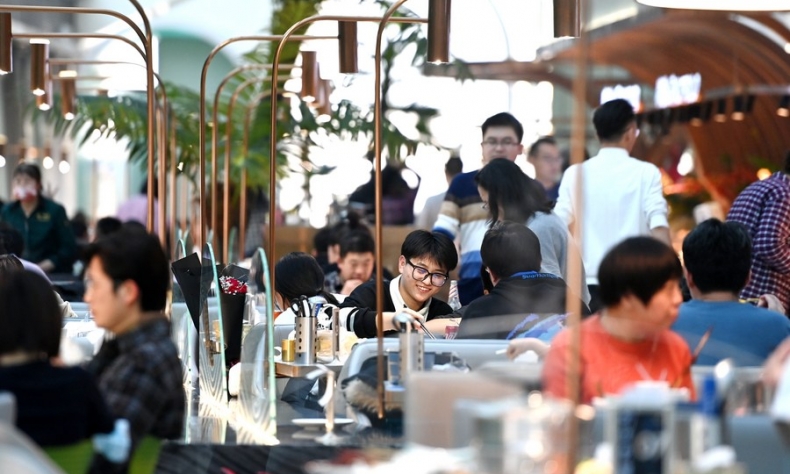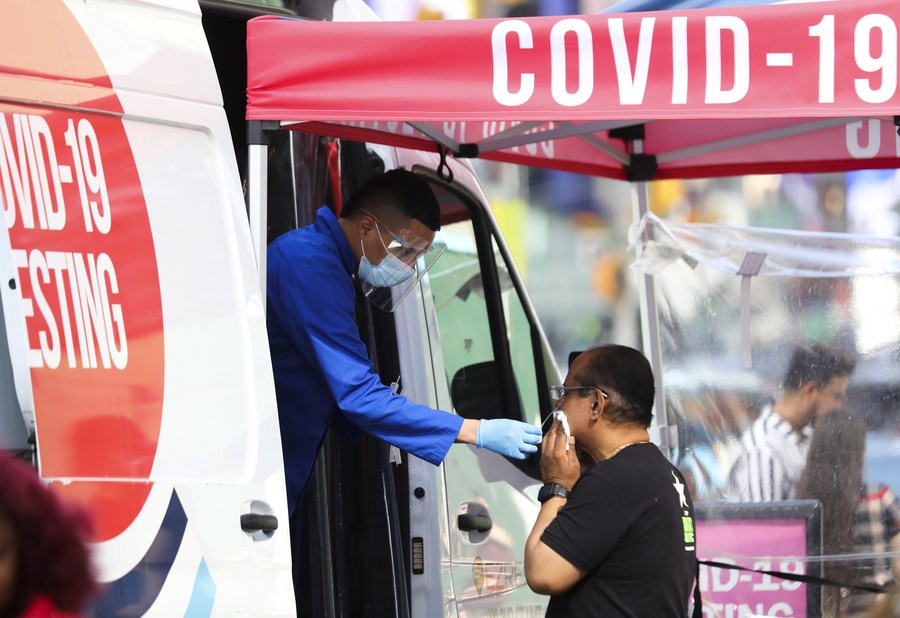Post-COVID Reflections

While a three-year relationship is by no means brief, I know many of us, wherever we are in the world, are ready to embrace whatever comes next.
I was teaching English at Liaoning University in Shenyang, capital of the northeastern Chinese province of Liaoning, in 1998, my first year in the country. It was a formative experience for me and my career has been connected to China in one way or another ever since. I’d already worked as a public health officer for the U.S. Centers for Disease Control and Prevention and spent time around the world at that point, including completing my master’s research at a Bangladeshi cholera hospital. My time in Shenyang convinced me that China had figured something out that was eluding other developing countries—and developed ones as well. This would lead my doctoral studies that aimed to discover what precisely China knew, even if what it knew wasn’t quite clear to the Chinese themselves just yet.
But my real point here is to say I had a lot of new students that year, all of them Chinese, all of them with fake English names, which I found hard to keep straight. Walking across campus one morning, a student greeted me enthusiastically and I responded by calling out her name, “Jojo!” “My name’s not Jojo,” she protested. I said, “Oh, I know. ‘Jojo’ is slang for “hello/goodbye” when two people are passing each other in a hurry.” “Is that true?” she asked. “Absolutely not, but let’s pretend it is.” So the rest of the term, that’s what we did. Soon we had many people saying “jojo” to each other. And after China’s whirlwind exit from its dynamic zero-COVID policy in the last month of 2022 and my own quick dance with infection and recovery, it’s a good time to say “jojo” to COVID-19 and move forward with 2023.
Nevertheless, the end of one year and the start of a new one is often a period of introspection and reflection. We saw this of course with President Xi Jinping’s tone-setting New Year speech, where he acknowledged both the achievements and challenges faced in 2022, and the struggle to pass through the current wave of infections and reinvigorate economic growth. Indeed, it’s important now to keep a healthy perspective, to historicize the current struggle in the context of broader successes associated with how China has handled the pandemic over the past three years versus how others handled it, and how China will handle the recovery in the coming months.
I’d like to offer a number of personal reflections on COVID-19 given the experiences I had facing it.

Indeed, the first reflection comes from my experiences in the United States. An absolute tragedy. I still weep when I recall the food lines, old friends spiraling into drug and alcohol addiction, and another five who died from infection—two the same age as me. I remember the refrigerator trucks full of corpses outside hospitals, and how many of the frozen bodies inside were former nurses and doctors. I remember men carrying guns wherever they went. I remember the panic buying and empty shops. I remember the racism directed against my half-Chinese kids and Chinese friends. I remember moving around the country to stay ahead of local surges, and the stint in Washington, D.C., the city that had boarded up against protesters, and taking my daughter to join the lines at the Capitol against the Trumpists. But above all I remember the face of my mechanic, telling me about his dad—suffering from dementia in a nursing home. The nursing home locked down but COVID-19 got in anyway and he died alone, crying, unable to understand why he’d been abandoned by his family.
The second reflection recounts running the gauntlet of controls to reenter China, including the 14+7 quarantine, 14 days in a centralized facility and seven days at home, overlapping Christmas and New Year last year. Omicron was just breaking in the U.S. then, with the country reporting a major new mutation that was less pathogenic but more infectious, and thus less likely to kill the average person, but likely to kill more people overall given the difficulties in slowing the spread. Indeed, in some places, the American northeast for example, Omicron exacted a heavy toll; but even in the south it would claim two of my friends, while I spent my time getting over jet lag, safe and sound in a Shanghai quarantine hotel. But I worried about my parents and kids, whom I’d left behind in the U.S..
The third reflection recalls the Shanghai lockdown in April and May of 2022. Or a time of cabbage, radish and more cabbage. Actually, the food situation was never critical for most of us given across the city, buildings organized for group purchases. We bartered spices extensively and the extra box of spicy peppers was sent to my immediate neighbors—who are from Hunan Province, a place famed for its hot and spicy flavors. In fact, the first relief shipment our building received came courtesy of Liaoning, which I cherished as Shenyang is my first Chinese home.

The fourth reflection details finally getting my kids out of the U.S. and back into China while still managing life with controls. Fortunately, their quarantines were 7+3, seven days in a centralized facility and three days at home, but the Omicron threat and the COVID soup of more than 100 international variations was getting harder and harder to suppress. We didn’t lock down again but we did have a few days of “silence.” After three years of dodging the virus in the U.S., I was curious to find out what my kids would make of the controls here, expecting my son to be the most critical. His response: “They’re not that bad, and they’re clearly aiming for good results.”
The fifth reflection centers on China’s rapid exit from excessive restrictions and getting infected a week later. My kids had asymptomatic infections and my own illness was mild, just a few unpleasant days and a weeklong experience. We were well-prepared and the care package we received from the Shanghai Government was sent instead to a friend’s family struggling without ibuprofen. To be sure, others have struggled more, including people we know well. And while we don’t know anyone who’s died from the disease in China, assuredly there have been deaths. That was always going to be unavoidable, but by holding the line as long as it could, China has not only ensured fewer people will die, it also gave those who will succumb to the disease more time to live.
My sixth and final reflection is the present—recovery. The virus is now everywhere. Ironically, now I “discriminate” a bit against those who haven’t been infected. If you’re recovered, then we can spend time together and need not worry about things. By current published standards, I recovered a couple of weeks ago. But I still have to be a little careful. I can’t work or exercise as much as I did before infection. It will take some time to fully recover. But nearly everyone I know has been infected. Some were asymptomatic, like my kids, others struggled quite a bit more, probably technically still mild but if so then a very spicy mild to say the least. A couple have been hospitalized. One of the funny things is I still find myself flinching in public when someone coughs. Now everyone is coughing. But a city of coughers is better than a city of coffins. And while a three-year relationship is by no means brief, I know many of us, wherever we are in the world, are ready to say “jojo” to COVID-19 and embrace whatever comes next.
The author is a professor of politics and international relations at East China Normal University and a senior research fellow with the Institute for the Development of Socialism with Chinese Characteristics at Southeast University.
 Facebook
Facebook
 Twitter
Twitter
 Linkedin
Linkedin
 Google +
Google +










